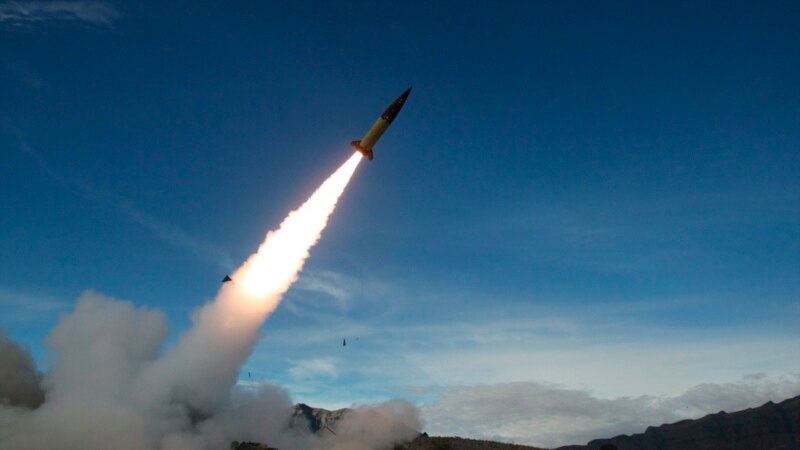Warsaw — Many in Ukraine see the Biden administration’s decision to allow Ukraine to use U.S.-supplied long-range missiles to strike targets inside Russian territory as a turning point in the war but welcome it with a mix of gratitude and frustration.
"Strikes are not made with words," President Volodymyr Zelenskyy said in his nightly address. "The missiles will speak for themselves."
His tone reflects the high stakes involved in this decision, which comes as Ukraine braces for intensified Russian offensives following the reported deployment of 12,000 North Korean troops to bolster Moscow’s efforts.
Ukrainian officials and analysts see the U.S. authorization as a crucial move, allowing Ukraine to target key military installations in Russia, particularly in the Kursk region, where new threats are emerging. However, Andriy Zagorodnyuk, former Minister of Defense (2019–2020) and adviser to the government, said the delay in granting such permissions has cost Ukraine dearly.
"Ukraine has been asking for this for years, not months," Zagorodnyuk told VOA. "The administration’s fear of escalation led to an overcautious approach. This reactive, piecemeal strategy — responding to Russian provocations rather than implementing a comprehensive plan — has not brought us closer to resolving the war. Instead, it has allowed Russia to escalate further."
Critical stage
The decision follows an escalation of Russian missile and drone attacks on Ukraine’s civilian infrastructure, yet the timing raises questions about the long-term strategy of Western allies.
Mark Voyger, director of the master's program in Global Management at American University Kyiv, emphasized the operational and psychological importance of the decision. "Operationally, these missiles can target Russian storage facilities, command centers, and even North Korean troops preparing for offensive actions," Voyger explained.
"Better late than never, the time for inaction and ... psychological [self-constraint] due to some presumed fear of escalation is over." Voyger highlighted the risks of delay. "This decision should have been made earlier to save lives and give Ukraine a stronger hand on the battlefield. The reactive approach only emboldens Russia to escalate further."
Zagorodnyuk echoed these sentiments, warning that the U.S. policy of incremental aid has hindered Ukraine’s ability to gain the upper hand. "This piecemeal strategy, like doing little steps, step by step, as a reaction [to] some escalation from Russia's side, is, first of all, escalatory itself. And secondly, [it] is not bringing us to any resolution of the war. Because we [are] essentially supporting Russia escalating the war.”
Russian reaction
Moscow condemned the U.S. decision as an escalation of U.S. involvement in the war and warned of serious consequences.
"If such a decision was really formulated and brought to the attention of the Kyiv regime, then, of course, this is a qualitatively new round of tension and a qualitatively new situation in terms of the involvement of the United States in this conflict," Kremlin spokesperson Dmitry Peskov told Russian media.
Russian state media have amplified narratives accusing the U.S. of directly fueling the conflict, potentially laying the groundwork for further rhetorical or military escalations.
US leadership transition
The approaching U.S. transfer of power adds another layer of uncertainty.
There are fears in Kyiv that Washington’s critical support will be reversed, following President-elect Donald Trump’s campaign promises to end the war quickly with no clear outline of a strategy.
"Unlike [U.S. President Joe] Biden, Trump immediately announced his ultimate goal to stop the war. The question is — how is he going to do that?" Zagorodnyuk said. While Ukrainians would welcome an end to the war, “some people suggest all kinds of concessions from Ukraine,” which he said, “is not going to stop the war."
In a VOA interview, Voyger added that the Biden administration’s timing of this decision might reflect concerns about securing support for Ukraine before a potential political shift. "If a new administration pulls back on military aid or restricts Ukraine’s ability to strike, it could significantly weaken Ukraine’s position on the battlefield and at the negotiating table," he said.
Stopping the war
Both analysts agree that stopping the war needs a robust and proactive Western strategy. This includes providing Ukraine with sufficient long-range missiles, expanding the scope of permissible targets, and ensuring consistent support regardless of political changes in Washington.
"The West needs to empower Ukraine to not just defend itself, but to achieve the operational success that forces Russia to reconsider its aggression,” Voyger said.
Zagorodnyuk agrees the only way to force Russian President Vladimir Putin into serious negotiations is to put him in a position where he risks losing not just on the battlefield but also his hold on power. "The ideal situation for Ukraine would be that NATO allies, and first of all the United States, would provide us with the means to reach the effect [of] Putin [and Russia] losing its operations.
“Ukraine can successfully do a series of counteroffensive operations [that] would bring Putin to a situation where he would understand that unless he stops the war, he would be losing tremendously, and that would impact his regime and his power.”


